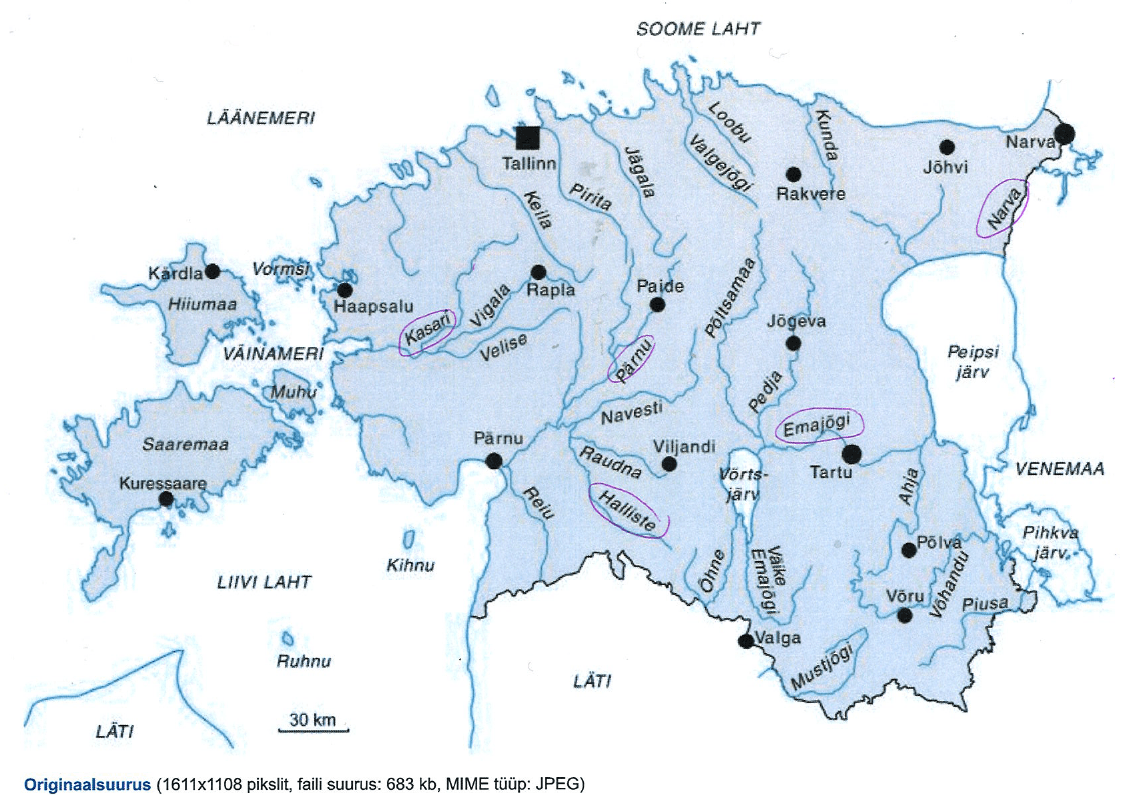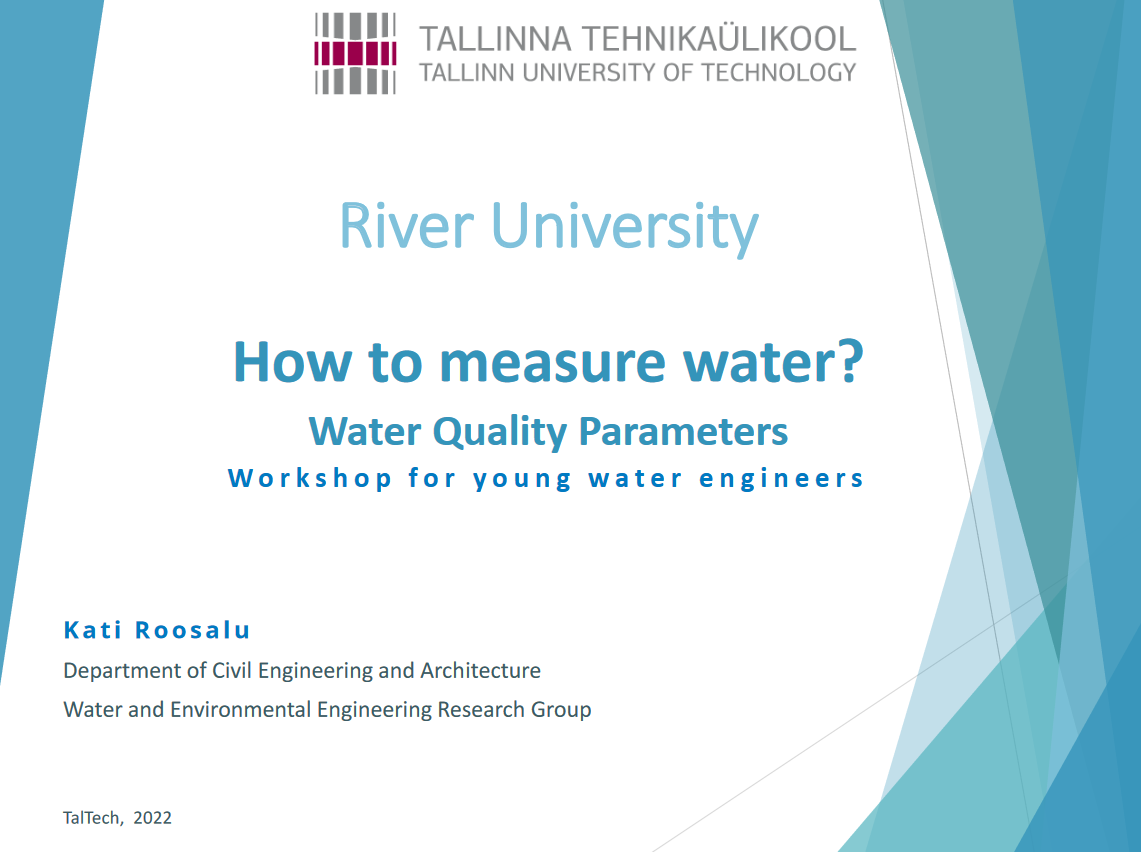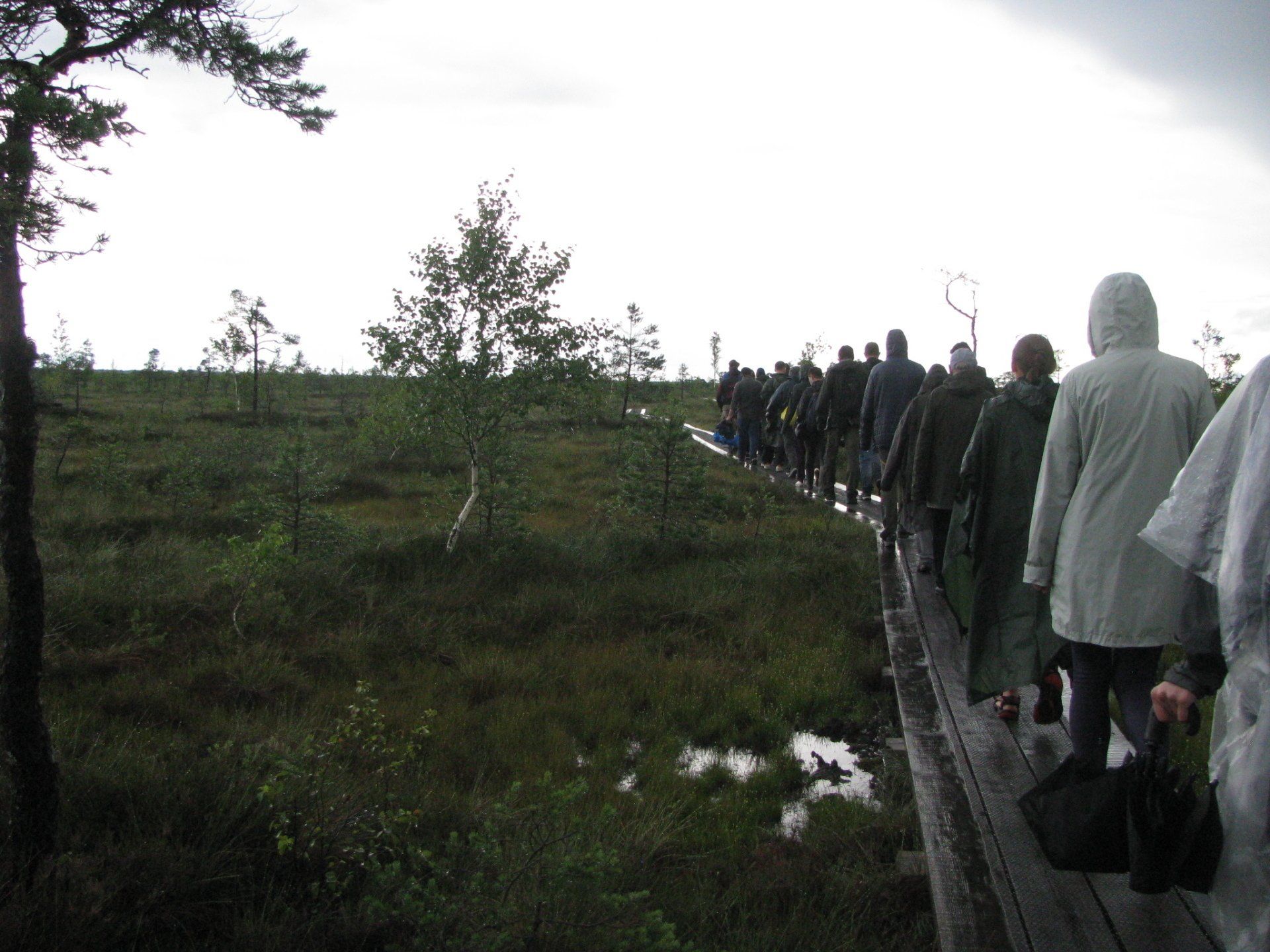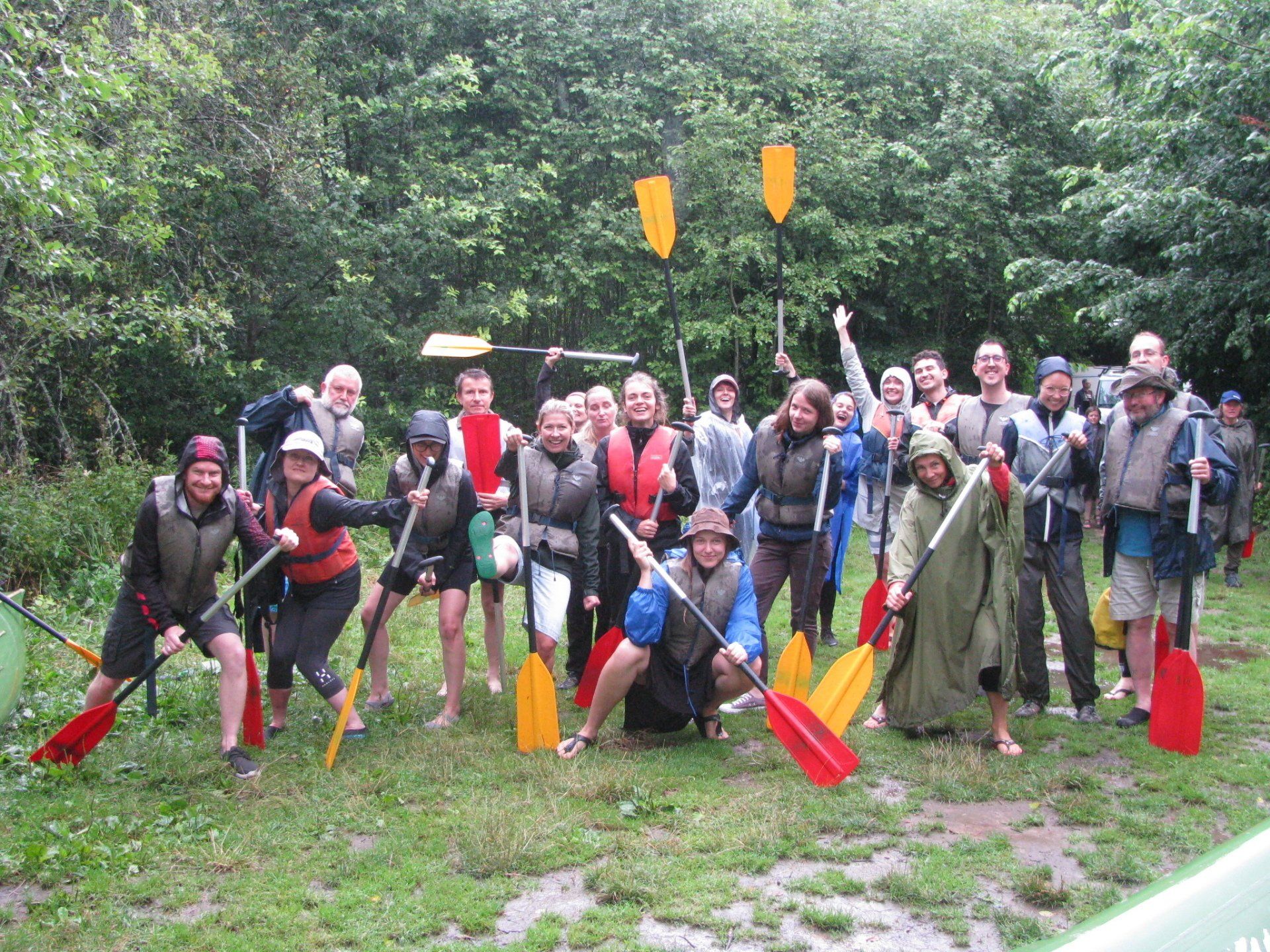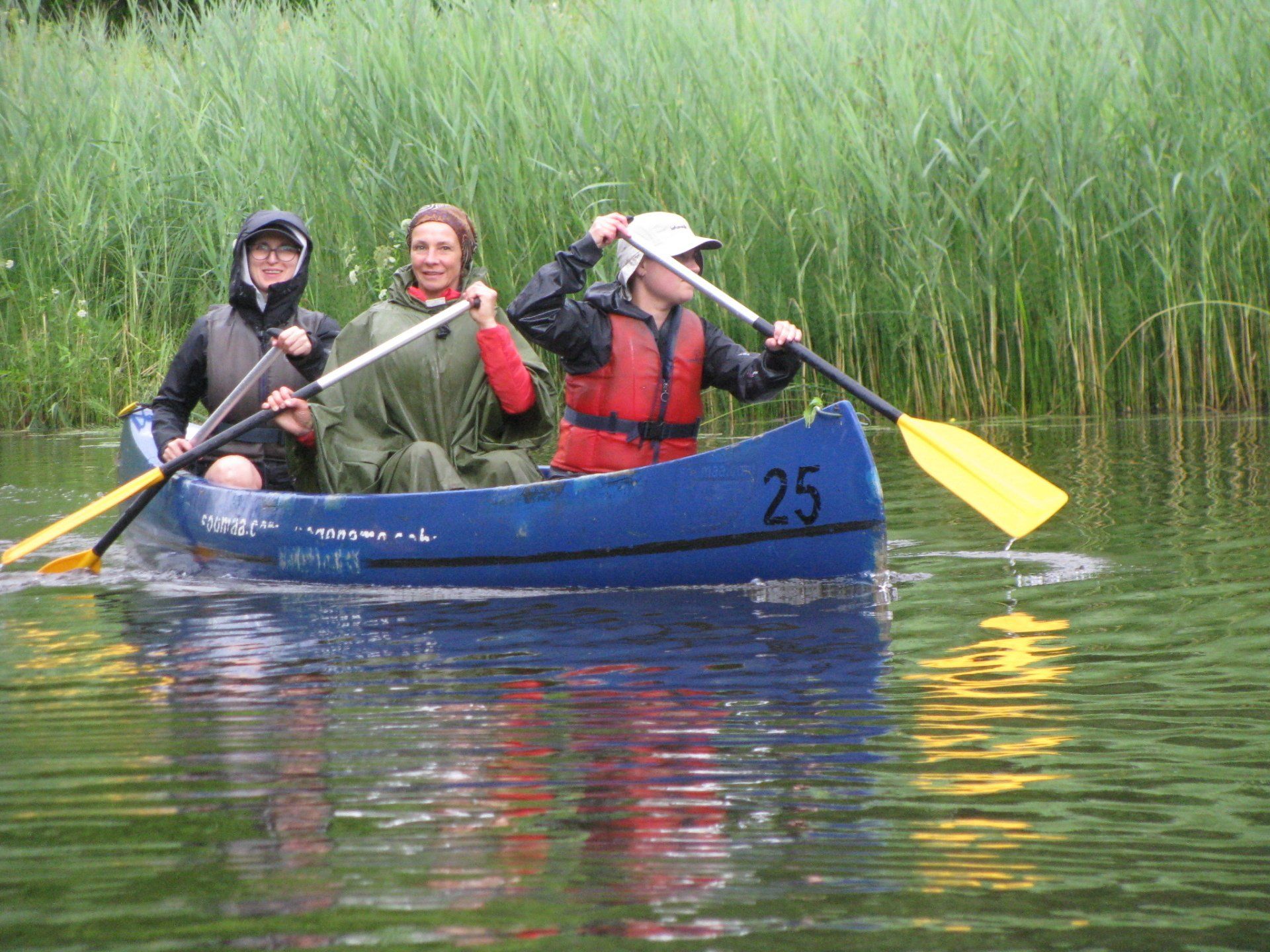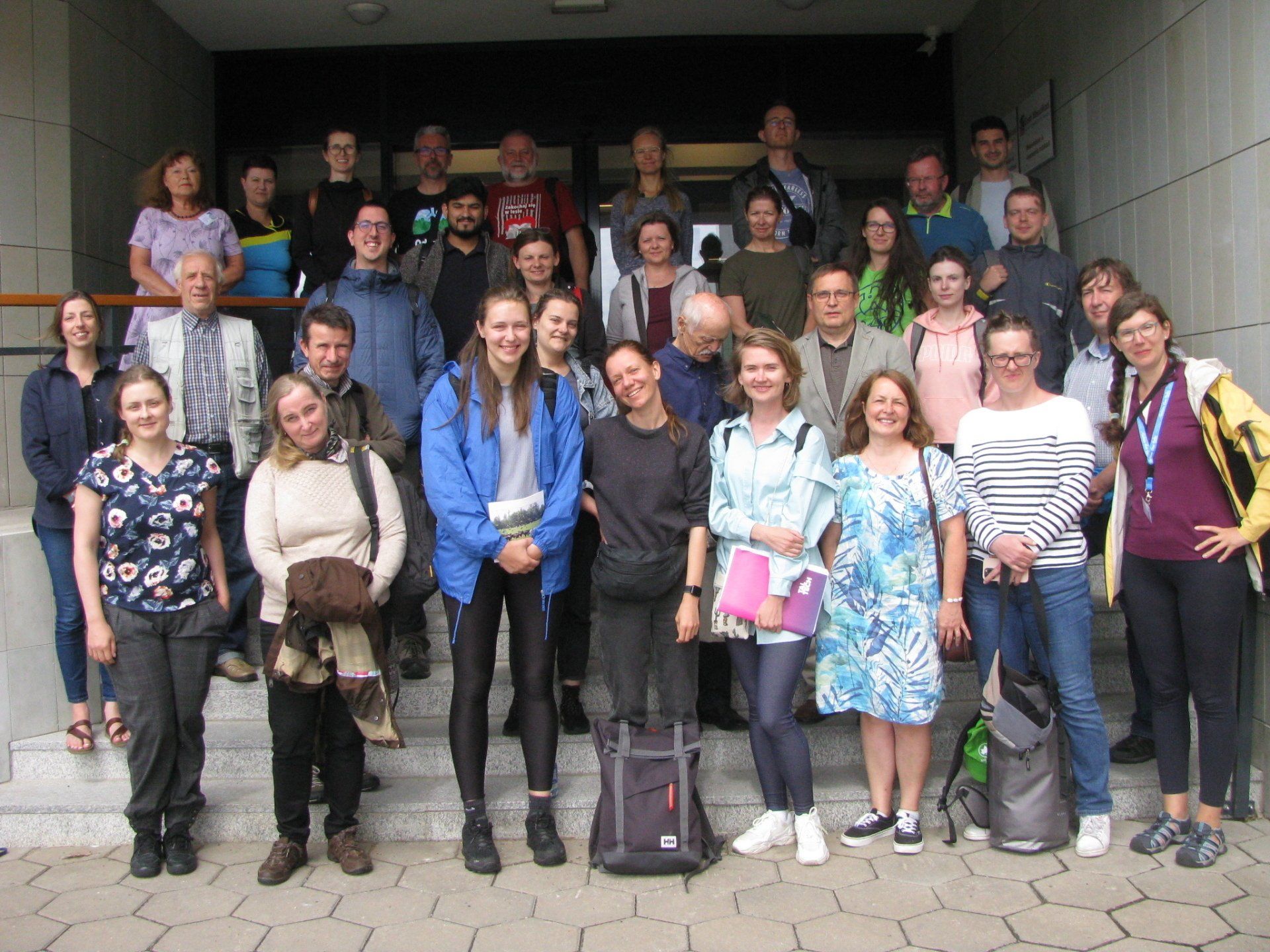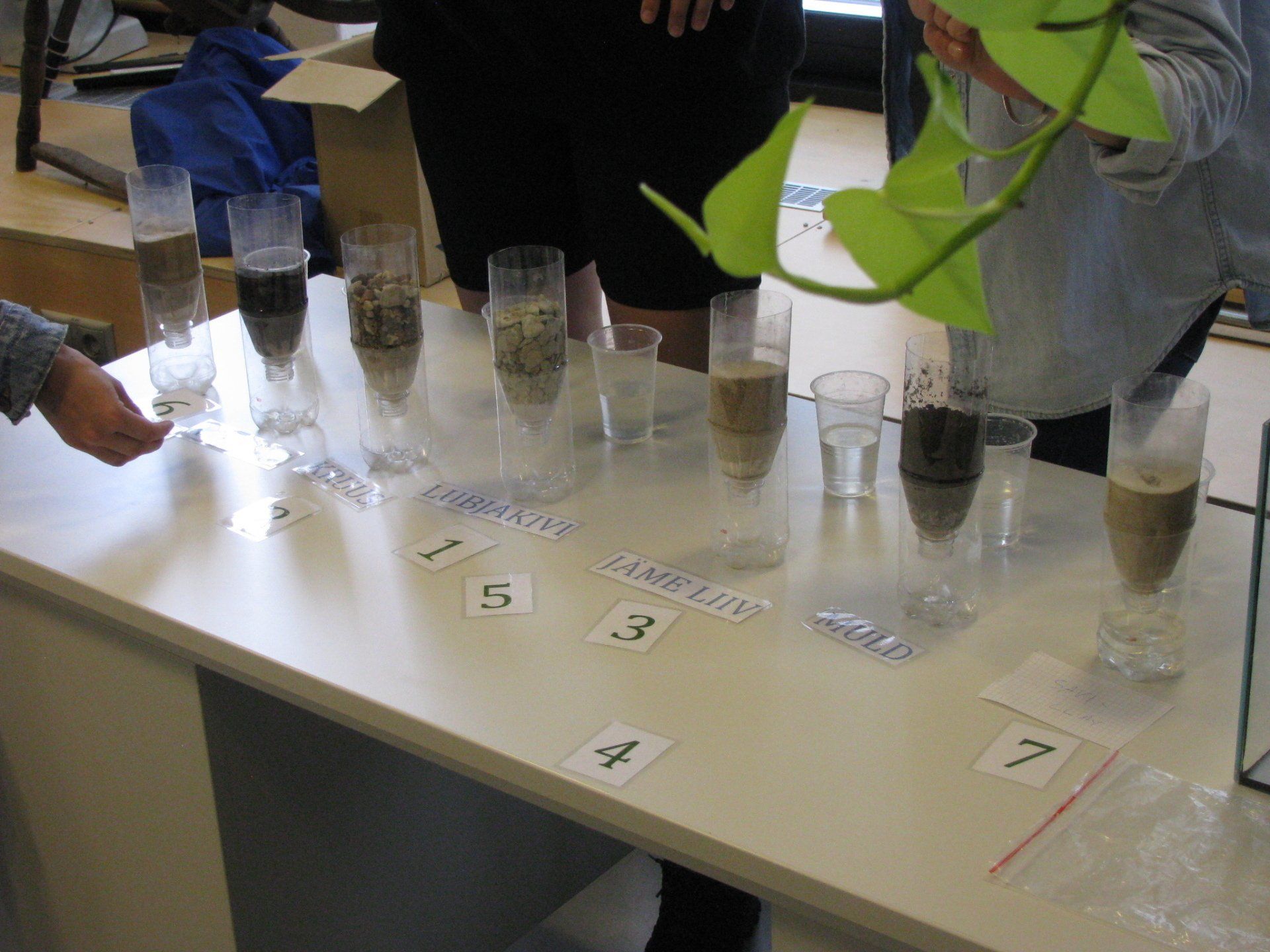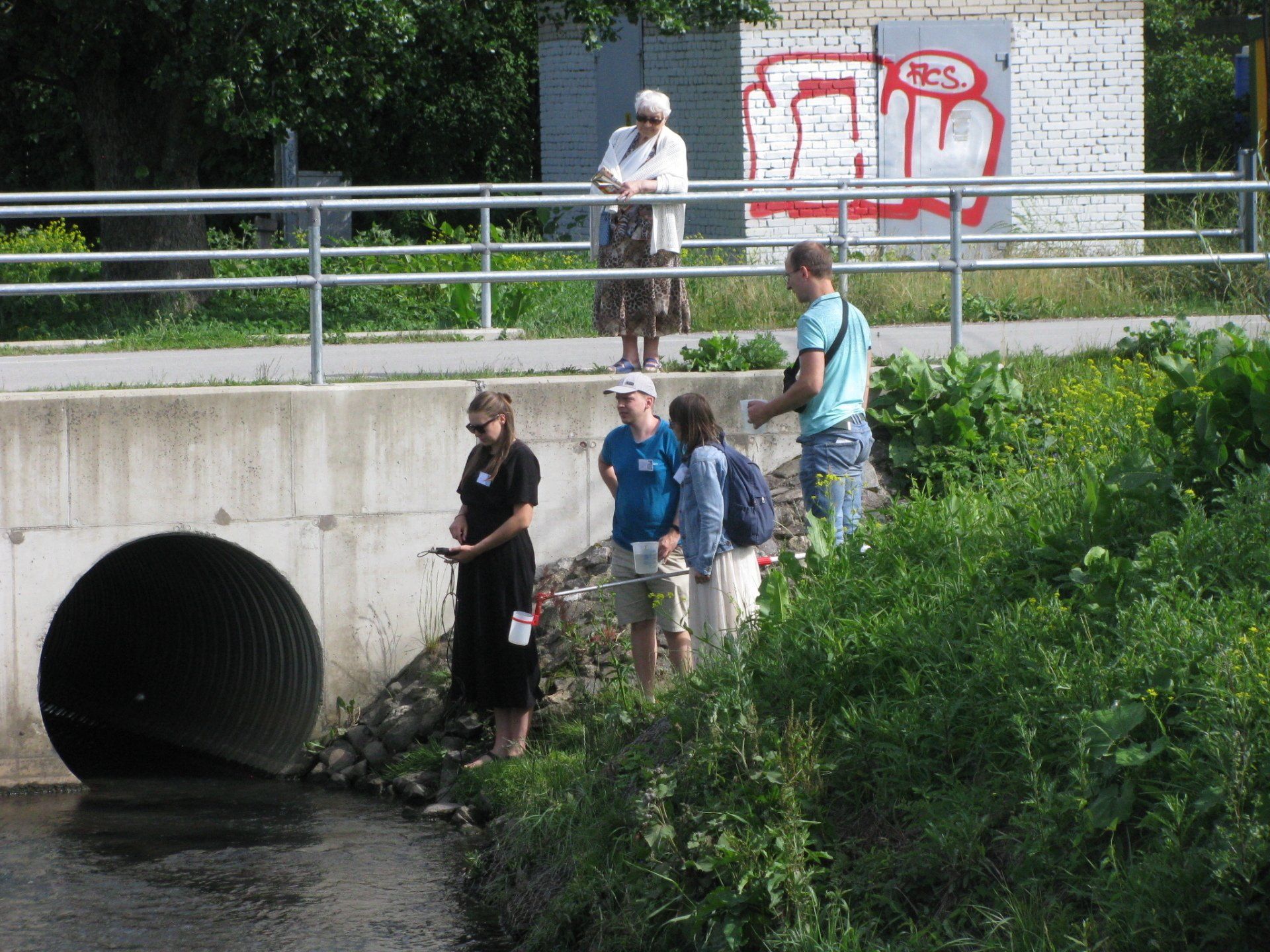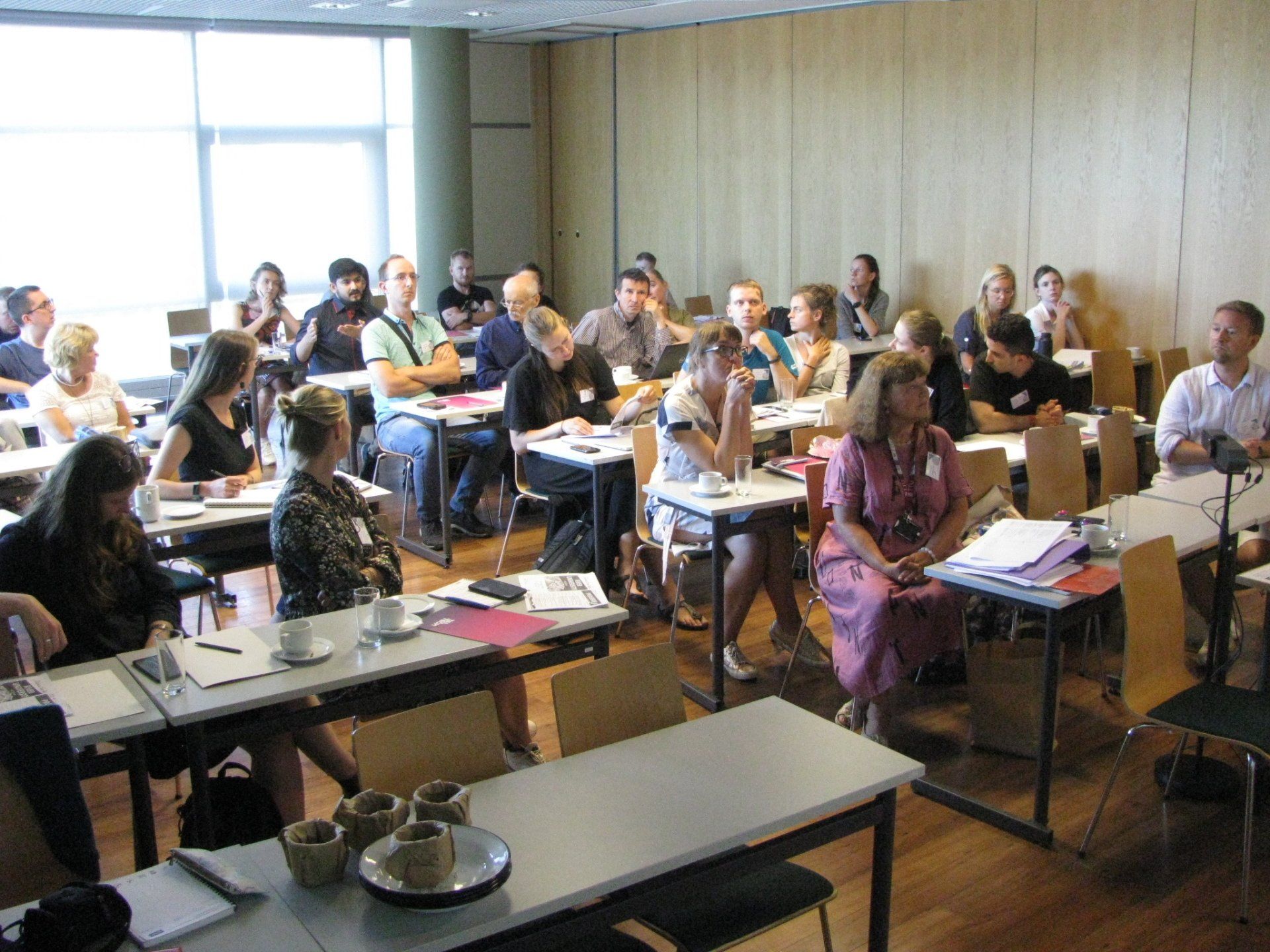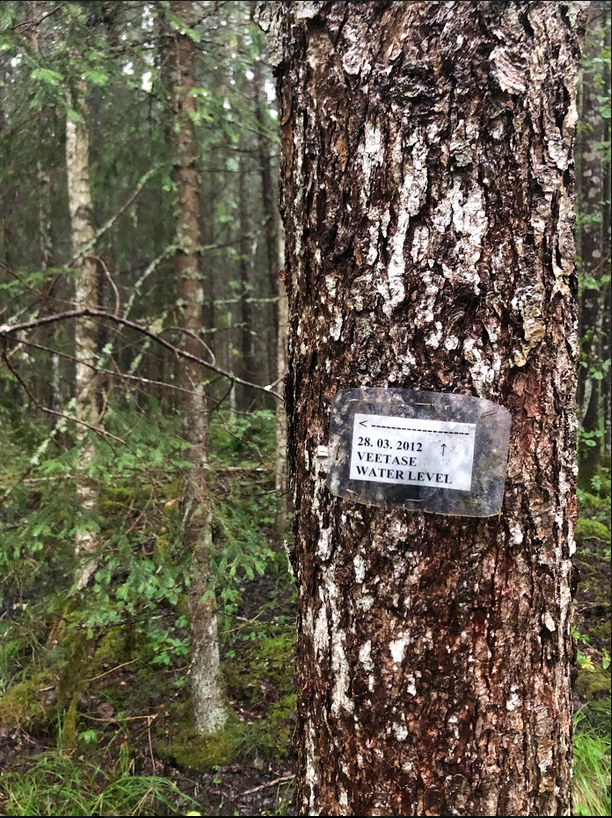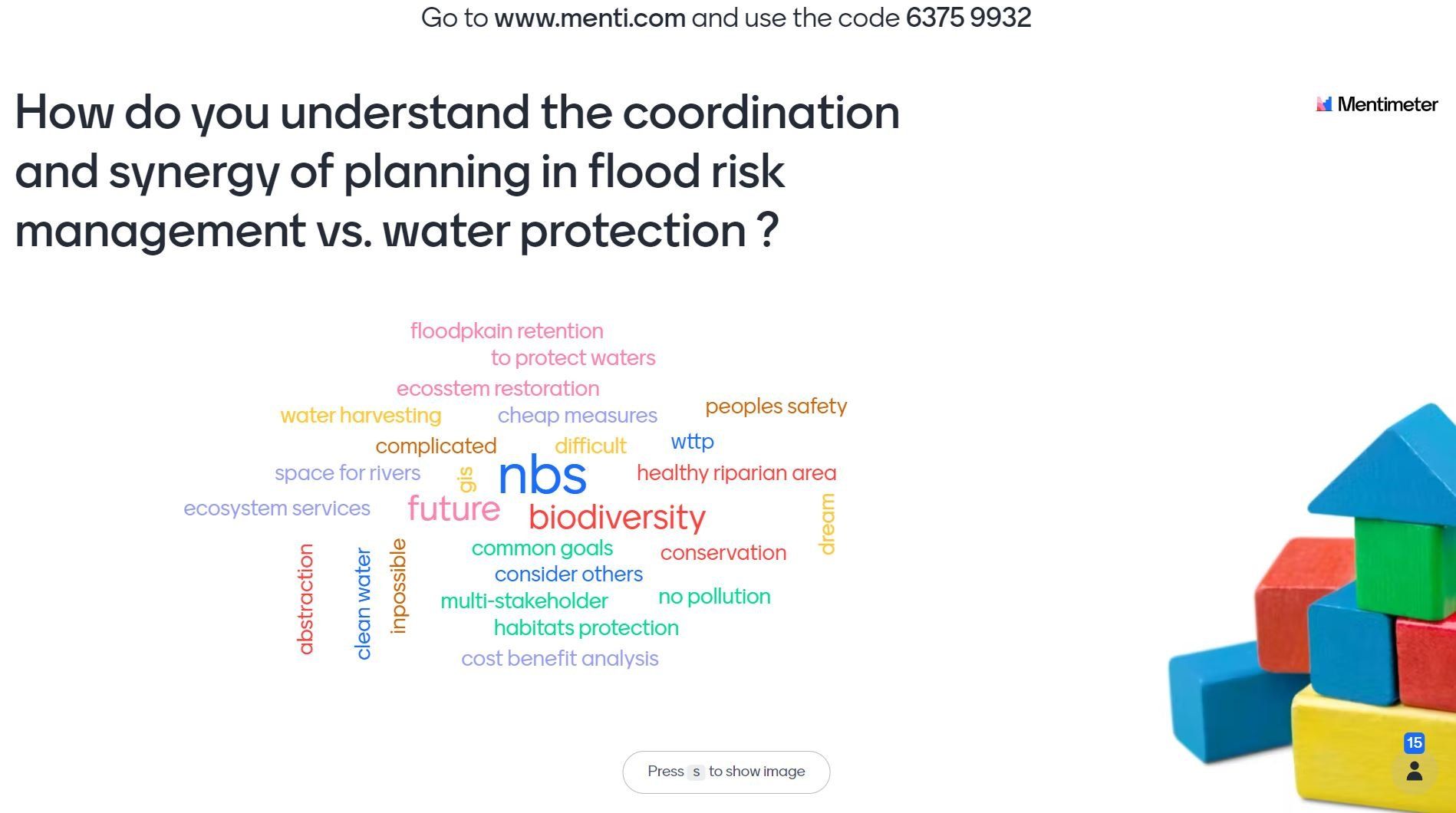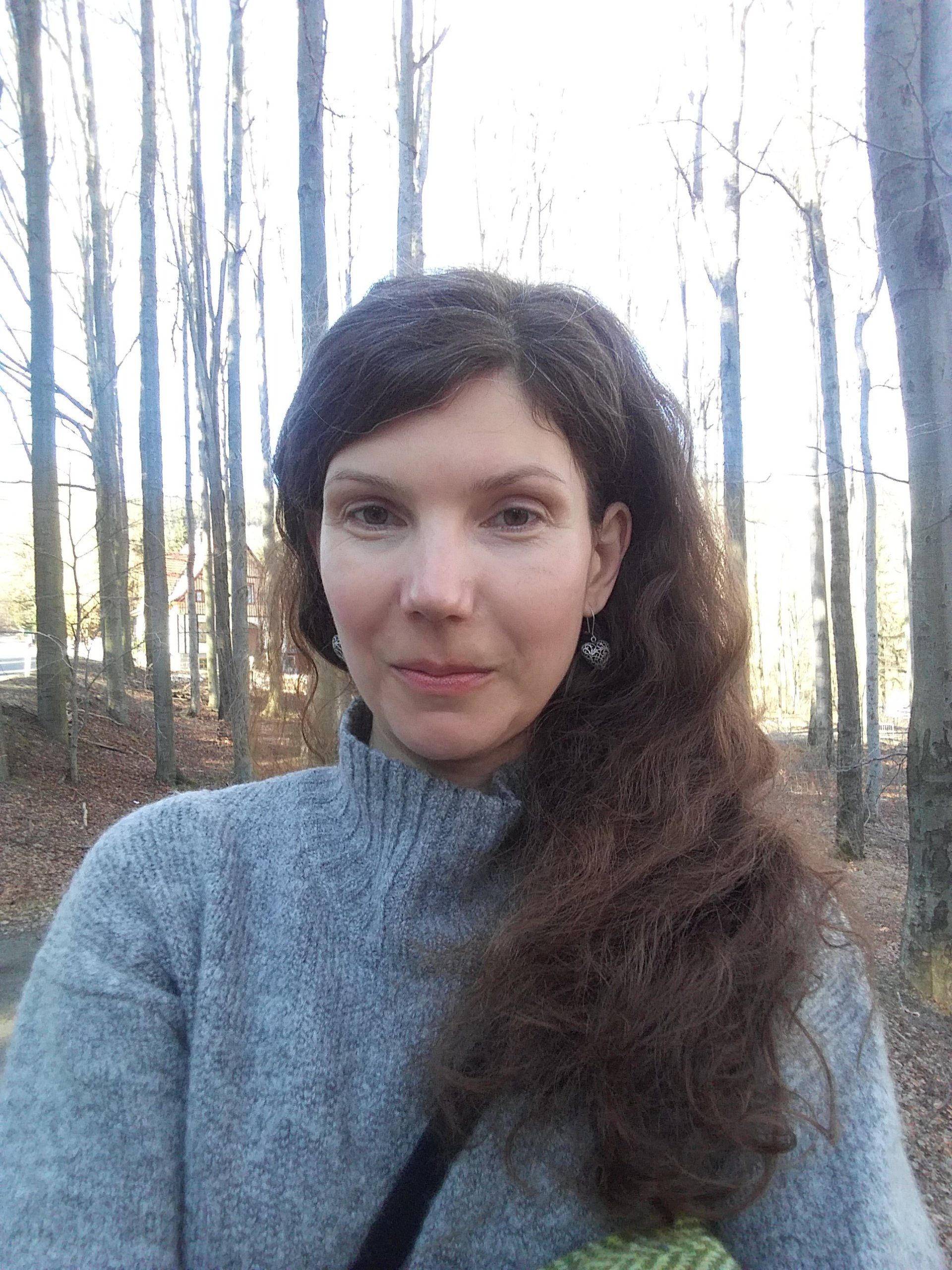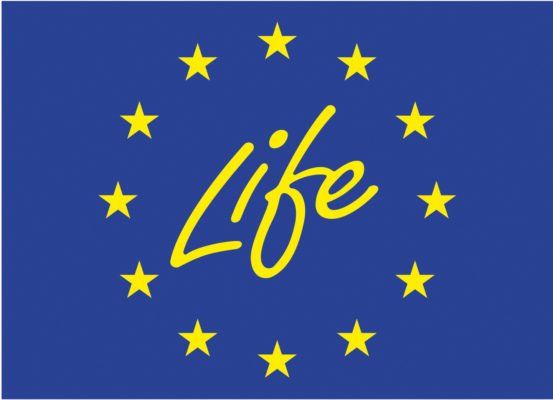
Welcome to River University 2022
The River University is an open and international, interdisciplinary course, sharing river ecosystems knowledge via open access, wide availability and understandable-science platform in the Baltic Sea Region and Europe for a variety of participants - river stakeholders: academia staff and students, river practitioners, water-related institutions and official country representatives, consulting/business participants, landscape architects, municipalities, locals and individuals.
Die River University fördert institutionelles und offizielles Wissen und wurde 2018 von Ewa Leś unter den Fittichen der Coalition Clean Baltic (CCB) gegründet, wo sie durch die Co-Organisation mit verschiedenen CCB-Mitgliedsorganisationen erfolgreich weiterentwickelt wurde. Der Pilotfall fand 2018 in Polen statt. Anschließend wurde er international mit der 1. Ausgabe in Polen (2020) und der 2. Ausgabe in Litauen (2021) etabliert.
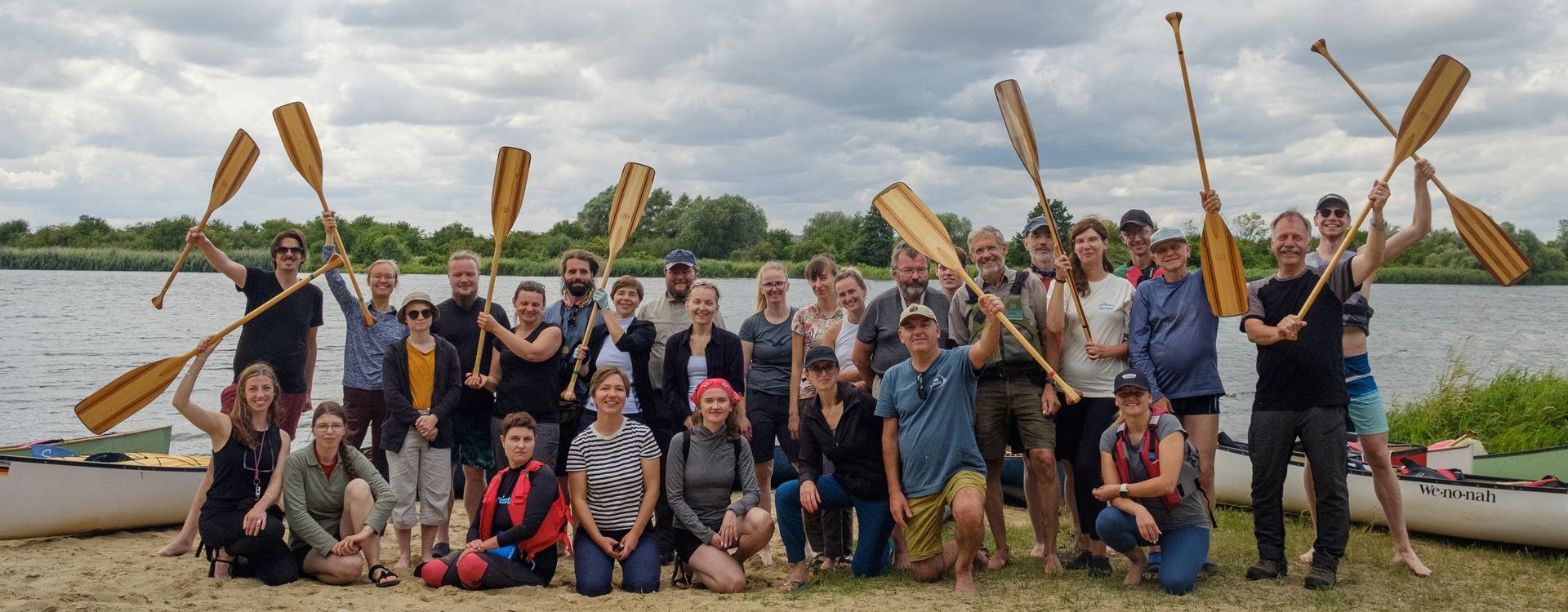
11.-15. Juli 2022
Estland & online
Die internationale Flussuniversität - 3. Ausgabe:
Die 3. Ausgabe der River University fand vom 11. bis 15. Juli 2022 in Estland statt und konzentrierte sich auf das Hochwasserrisikomanagement und die Förderung offener Wissenschaft.
We were hosted by the Estonian Water Association, CCB Observer and Co-organizer of this edition. As usual, besides the national water issues and cases, we checked the European background:
- Wie sieht die Situation des Hochwasserrisikomanagements in Europa derzeit aus, wenn man die enormen Überschwemmungskatastrophen bedenkt, die 2021 in einigen europäischen Ländern stattgefunden haben?
- What example does Estonia give us as the country with its so-called 5th season*?
- How climate change affects it?
- Wie geht die Gesellschaft mit den Überschwemmungen um und wie geht die Regierung vor?
Das Hauptthema dieser Ausgabe wurde von der Gründerin – Ewa Leś, Leiterin der CCB-Arbeitsgruppe für Eutrophierung – aufgrund eines echten Bedarfs gewählt: Wir alle erinnern uns an die jüngsten großen Überschwemmungen, die einige europäische Länder wie Belgien und Deutschland verwüstet haben. Dennoch haben wir viele Fragen, auf die es keine klaren Antworten gibt: Können wir Überschwemmungen verhindern? Wie können wir mit Hochwasserrisiken umgehen, ist es möglich, an Überschwemmungen zu leben und uns an sie anzupassen? Welche Instrumente und welche Regierungsführung gibt es?
*Im Dorf Riisa in Soomaa ist die Zeit der Frühjahrsfluten als fünfte Jahreszeit bekannt.
PRAKTISCHE INFORMATIONEN
Die Organisatorin unseres Aufenthalts in Estland: Maret Merisaar, Estnischer Wasserverband.
WANN: 11.-15. Juli 2022
WHERE:
Estonia, few river-related locations across the country.
Für Teilnehmer vor Ort begann am 11. Juli 2022 die River University 2022 an der Technischen Universität Tallinn, hauptsächlich im Gebäude SOC (Akadeemia tee 3) und im Auditorium SOC 211A. Einen Plan des Campus finden Sie hier.
HOW:
As usual, we combined indoor lectures with outdoor practice on/in the river. A full boat of riverine knowledge was delivered by the top lecturers from the best universities, also by practitioners who know rivers simply by working on it tirelessly.
Die Vorlesungen und Präsentationen wurden in englischer Sprache gehalten.
Sich gegenseitig zu helfen (z. B. bei Übersetzungen oder anderen Problemen) war für uns das wichtigste Element der Teamarbeit.
Der Kurs war ein Hybridkurs, das heißt die Hauptaktivitäten wurden vor Ort organisiert und die Vorlesungen waren auch online verfügbar.
WER:
Wir begrüßten alle, die sich für Themen rund um Binnengewässer, Wasserwirtschaft und Hochwasserrisikomanagement sowie aktuelle Trends und aktuelle Herausforderungen in diesen Bereichen interessierten.
VOR ORT (Estland)Auf Grundlage des Anmeldeformulars wurden bis zu 30 Teilnehmer eingeladen, damit unsere Gruppe sich gut auskennt und wohl fühlt. Die Teilnahme stand EU-Mitgliedstaaten sowie Ländern der Östlichen Partnerschaft unter den im Abschnitt „Kosten“ unten angegebenen Bedingungen offen.
Zur Teilnahme waren ausschließlich Inhaber eines Covid-19-Zertifikats eingeladen, die Kosten wurden vom CCB übernommen.
ONLINE
Online participation was open to everyone: some of the lectures were livestreamed on the CCB Facebook page, some of them were recorded and will be shared after the event.
The outdoor experiences were not delivered online.
REGISTRATION:
The registrations for onsite & online participants are closed.
Nur geimpfte Personen waren herzlich willkommen und bekamen die Kosten vom CCB erstattet. Ein gültiger (nicht älter als 48 Stunden) negativer PCR-Test wurde akzeptiert, wenn noch kein Impfstoff verfügbar war.
Bitte kaufen Sie KEINE Tickets, bevor Sie eine Bestätigung von den Veranstaltern erhalten haben.
KOSTEN:
The course was free of charge.
The costs of the participation (accommodation, travels, meals, lectures and outdoor activities) were covered by CCB.
Zu den erstatteten Kosten für Teilnehmer bis zu 250 Euro zählen die Reisekosten für Teilnehmer aus EU-Mitgliedstaaten sowie aus Ländern der Östlichen Partnerschaft.
CCB ist nicht verantwortlich für Verletzungen oder Verlust von Eigentum während der River University 2022.
Vorträge
11. Juli 2022
MARIA FALALEEVA, Internationale NGO EKAPRAEKT
Klimawandel und Wasserwandel im Ostseeraum (PDF)
MUREL TRUU, PhD
Studien zum Hochwassermanagement in Taltech (PDF)
NELSON VENEGAS C.,
Warsaw University of Life Science
Trenderkennung bei beobachteten Flusshochwassern in Polen (PDF)
ALVINA REIHAN, PhD, Estnischer Wasserverband
Narva-Watman. EE-RU-Projekt für eine gemeinsame Methodik zur Durchflussmessung (PDF)
MAI ANDRESSON, Tallinn City Government Strategy dept.
HEAWATER: Verbesserung kleiner urbaner Flüsse (Link)
12. Juli 2022
KARIN KLAUS, Naturhaus Pärnu
Besuch im Pärnu-Naturhaus (PDF) & Einführung in das Pärnu-Naturhaus auf Estnisch, Russisch, Englisch (PDF)
13 JULY 2022
EWA LEŚ, Coalition Clean Baltic, River University founder
Open science within river ecology: how to make the best of it? (PDF)
ANNA USHAKOVA,
Ecocentrum, Coalition Clean Baltic
Hochwasserrisikomanagement im Ostseeraum (PDF)
PIOTR MATCZAK, Adam-Mickiewicz-Universität in Posen
Hochwasserrisikomanagement im Ostseeraum (PDF)
ILONA BIEDROŃ, Hektary dla Natury Foundation
MARET MERISAAR, Estnischer Wasserverband, Koalition Clean Baltic
Hochwassermanagement: Die Rolle des Staates und der lokalen Behörden (PDF)
MAIT SEPP,
University of Tartu
Überschwemmungen in Estland (PDF)
14. Juli 2022
TOOMAS TAMM,
University of Life Sciences, Head of the Water Engineering Department &
TOOMAS KAPP, Tartu Waterworks
How Tartu is mitigating the floods from Emajõgi river? (PDF)
ENE INTERMITTE, Mitglied des EstWA-Vorstands der Universität Tartu
Untersuchungen zu den gesundheitlichen Risiken des Fluoridgehalts im Trinkwasser in Südestland (PDF)
15. Juli 2022
ALGIS MARTSOO,
Soomaa.com, tourism company
Estonia: country of the 5th season phenomena, floods of Soomaa & its nature tourism (PDF)
JANA PÕLDNURK, WA, Leiterin der Hydrologieabteilung der estnischen Umweltbehörde und Vorstandsmitglied von EstWA
Hydrologische Messungen in Soomaa (PDF)
Bilder von der Veranstaltung
-
Folientitel
Water people in the rain surrounded by a wet Kuresoo Bog, with the excellent guides Algis Martsoo and Jane Rebane from Soomaa.co. By Ewa Leś
Taste -
Folientitel
Explore wilderness of Estonia they say at Soomaa.com, explore ourselves and the teamwork too, we say. By Ewa Leś
Taste -
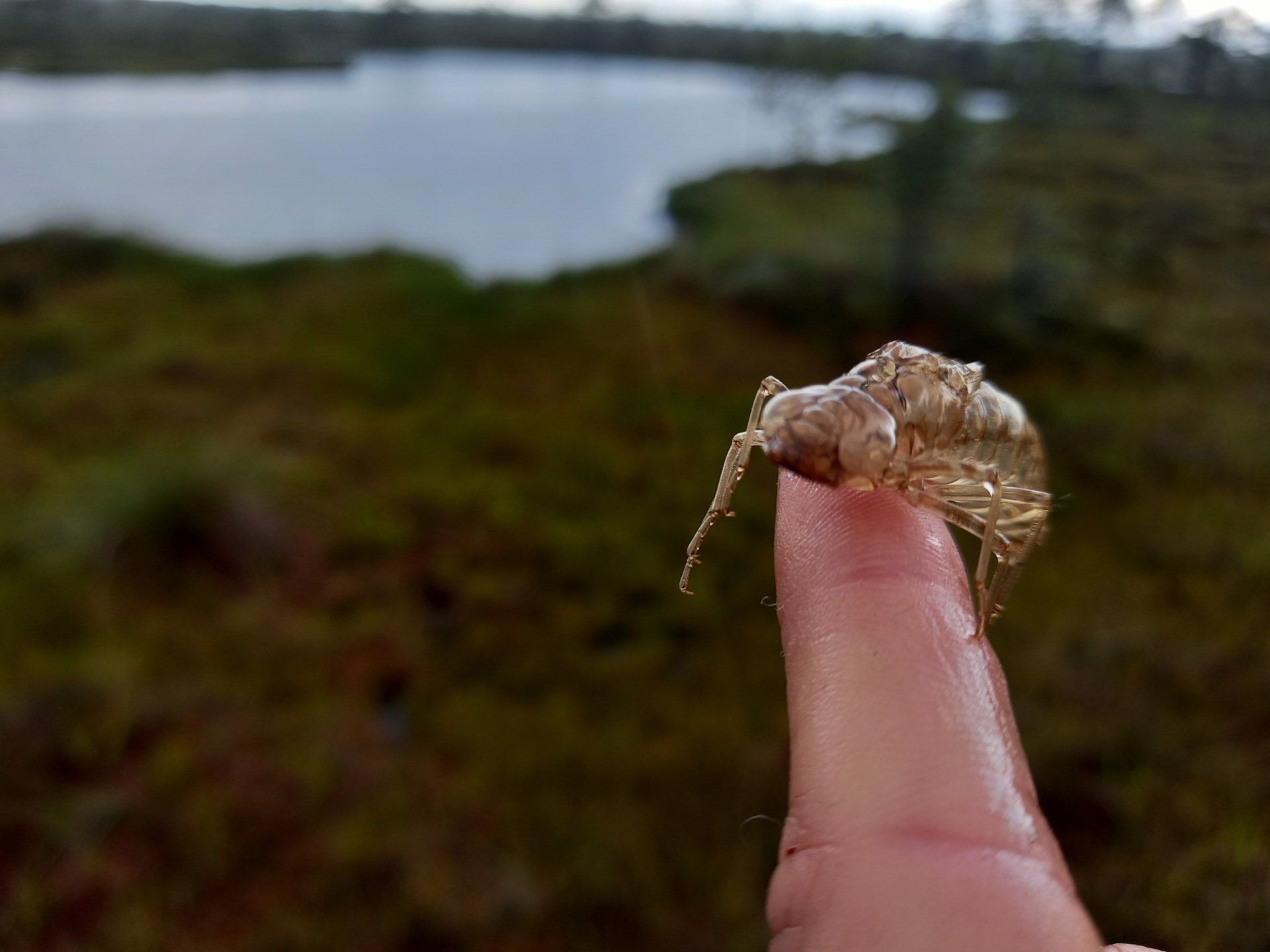
Folientitel
River University 2022. By Kari-Anne Van der Zon
Taste -
Folientitel
Being on water is our usual style during River University. By Ewa Leś
Taste -
Folientitel
Eesti Maaülikool/Estonian University of Life Sciences welcomed us with Tomas Tamms' hospitality and Arvo Järvet's introduction to the Aardla flood polder nearby Tartu: an area of wet meadows, pastures, grazing land and ponds, surrounding the Aardla Lake. By Wojciech Lewandowski
Taste -
Folientitel
Example of teaching about water purification technologies, quite important set of practical workshop. By Ewa Leś
Taste -
Folientitel
Taking measurments from the river before going to water laboratory of TalTech, Tallin. By Ewa Leś
Taste -
Folientitel
River University was hosted nicely by TalTech - Tallinn University of Technology during our opening day. By Ewa Leś
Taste -
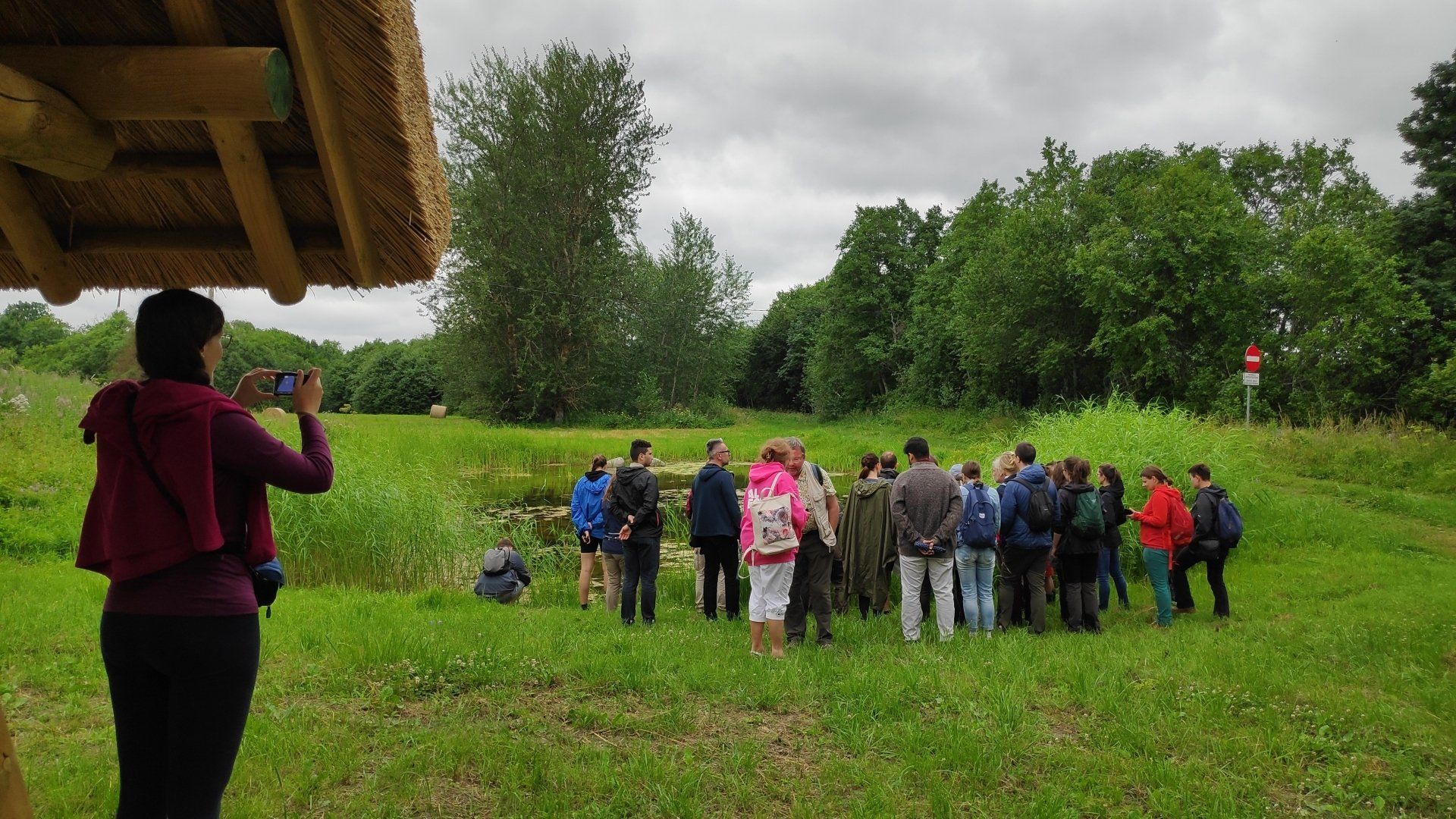
Folientitel
Exploring the management of coastal flooded rural areas, guided by the red man, Alex Lotman from Estonian Fund for Nature. An ongo by Ola Sieradzka - Stasiak.
Taste -
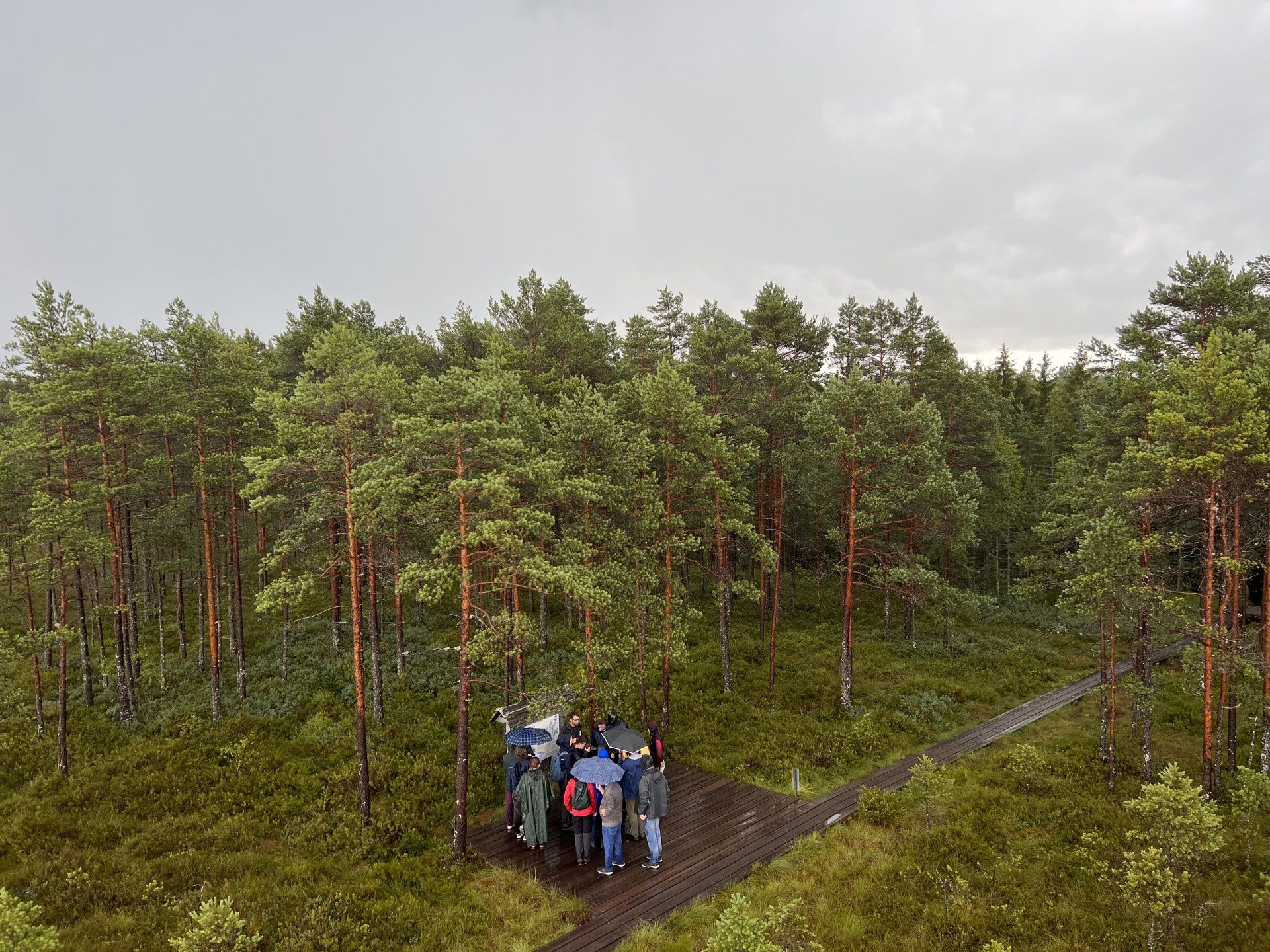
Folientitel
River University 2022 by Patrycja Romaniuk.
Taste -
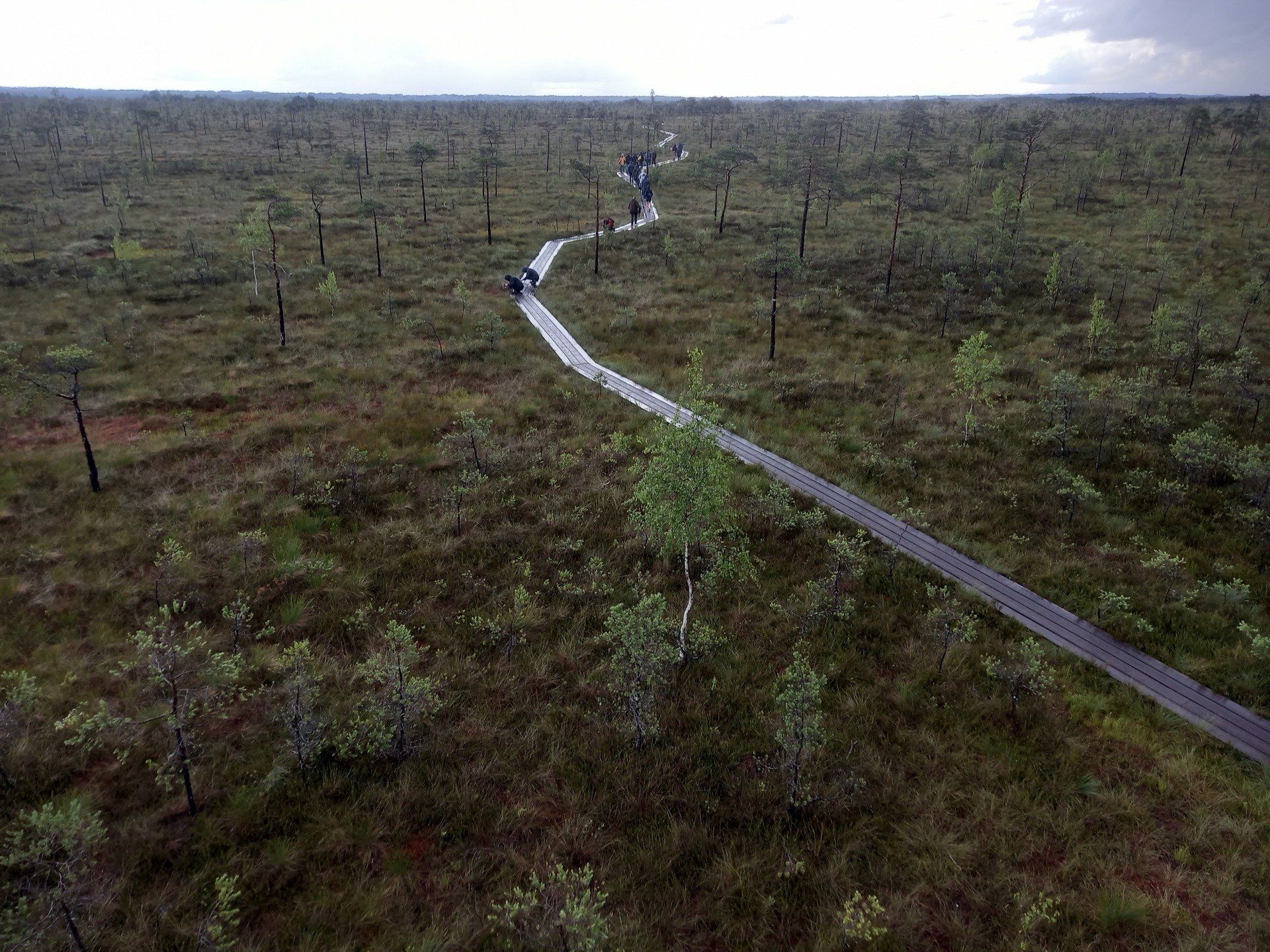
Folientitel
River University 2022. By Kari-Anne Van der Zon
Taste -
Folientitel
Water level marked on the tree reminds about the past flood. By Ieva Savickaitė
Taste -
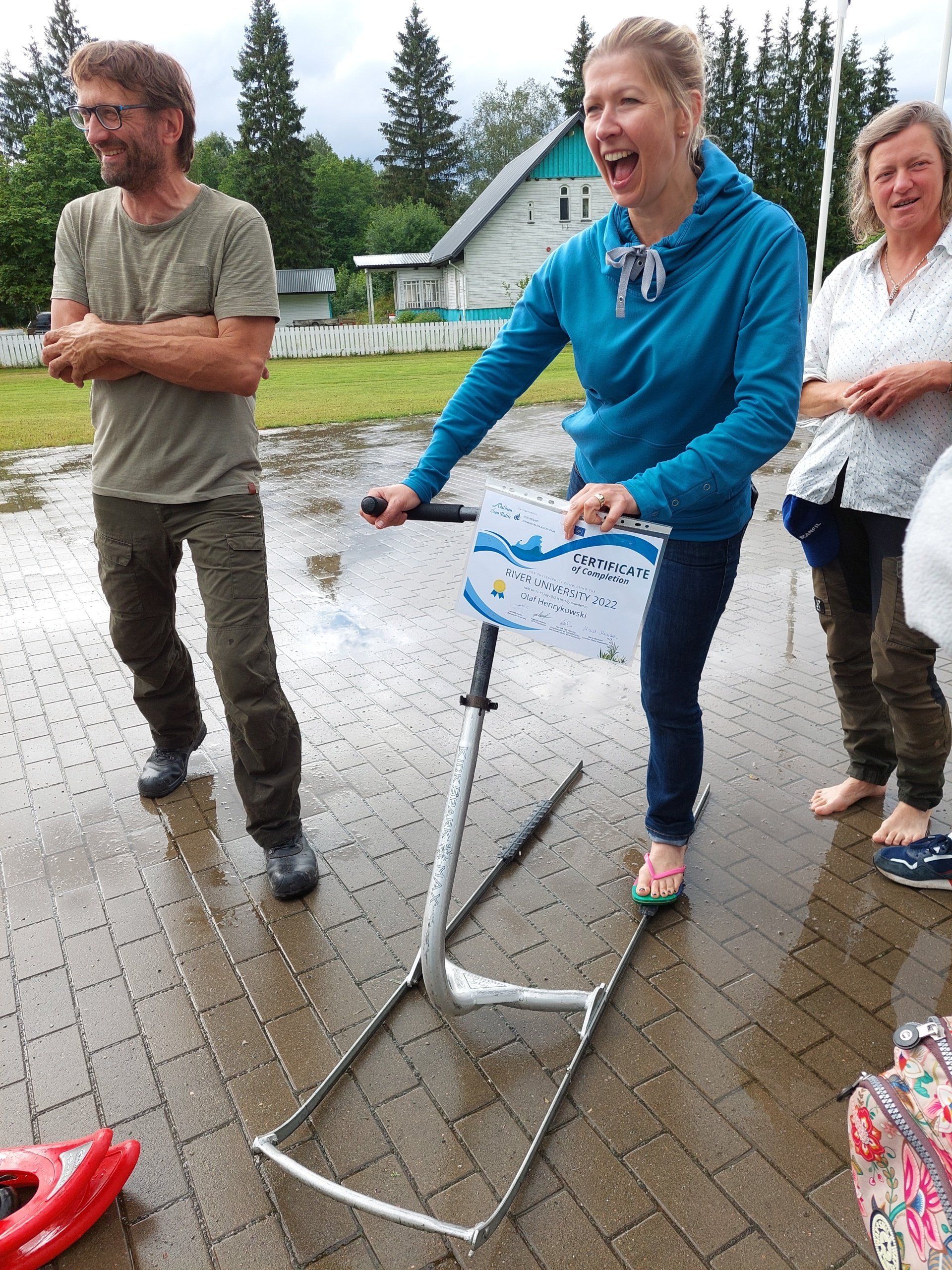
Folientitel
Certification in a less formal way, by discovering kick sledging, popular in the wintertime in Sooma. By Magdalena Suchora
Taste -
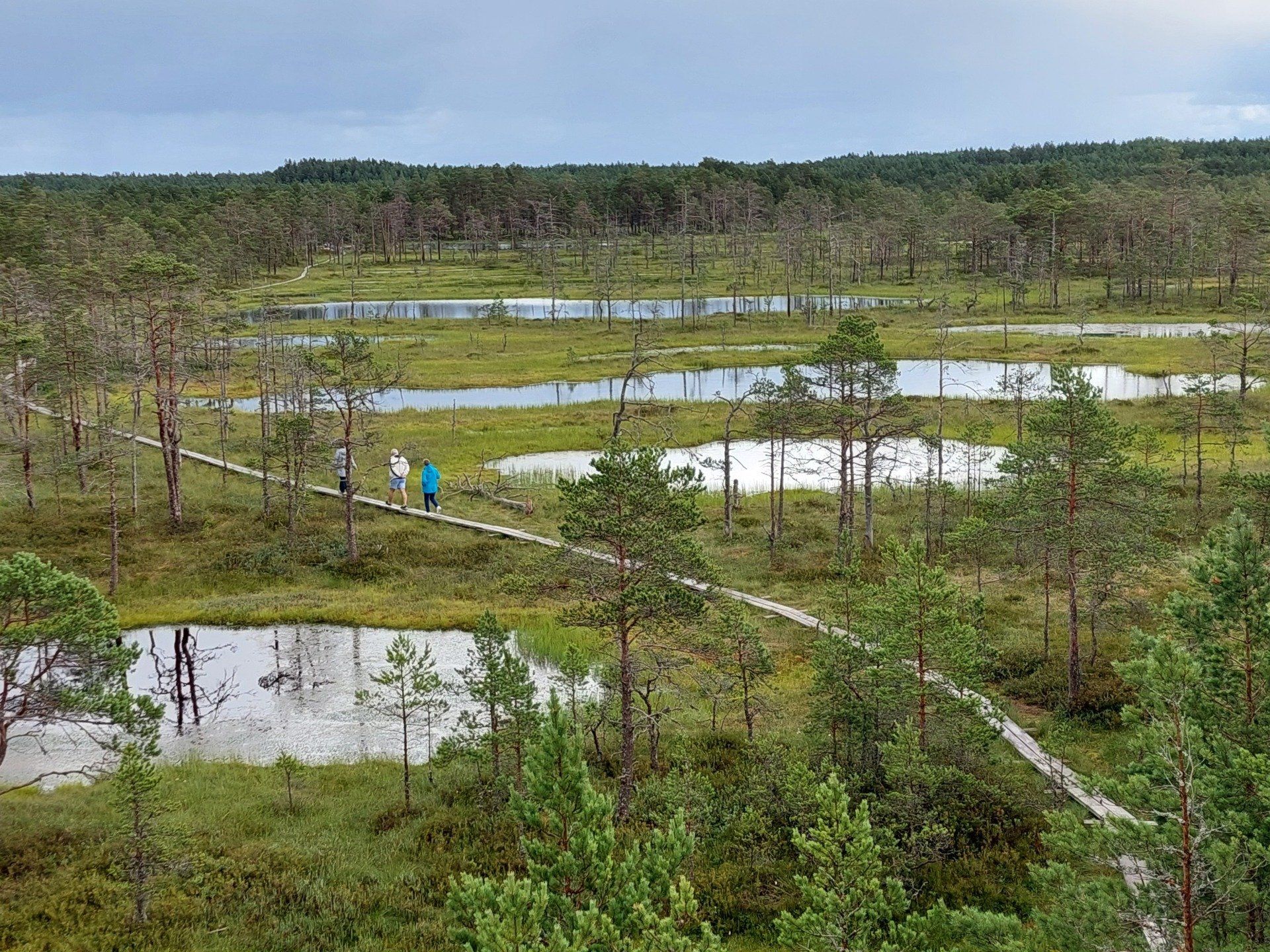
Folientitel
Immersing in the Estonian peat bogs in different ways. By Magdalena Suchora
Taste -

Folientitel
Discovering Estonian rivers in theory & in practice was our goal. By Agata Keller
Taste -
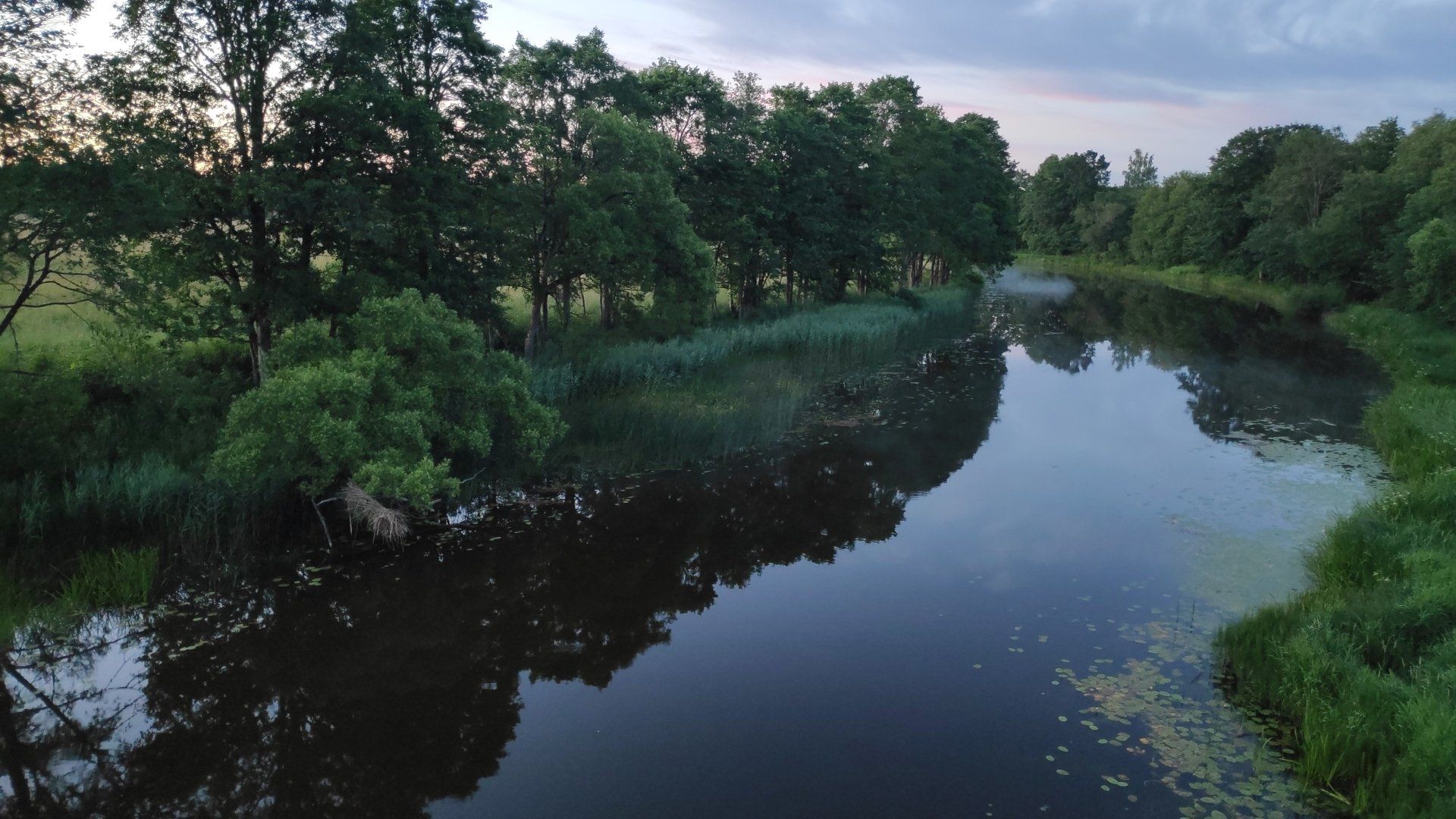
Folientitel
Discovering Estonian rivers in theory & in practice was our goal. By Aleksandra Sieradzka Stasiak
Taste -
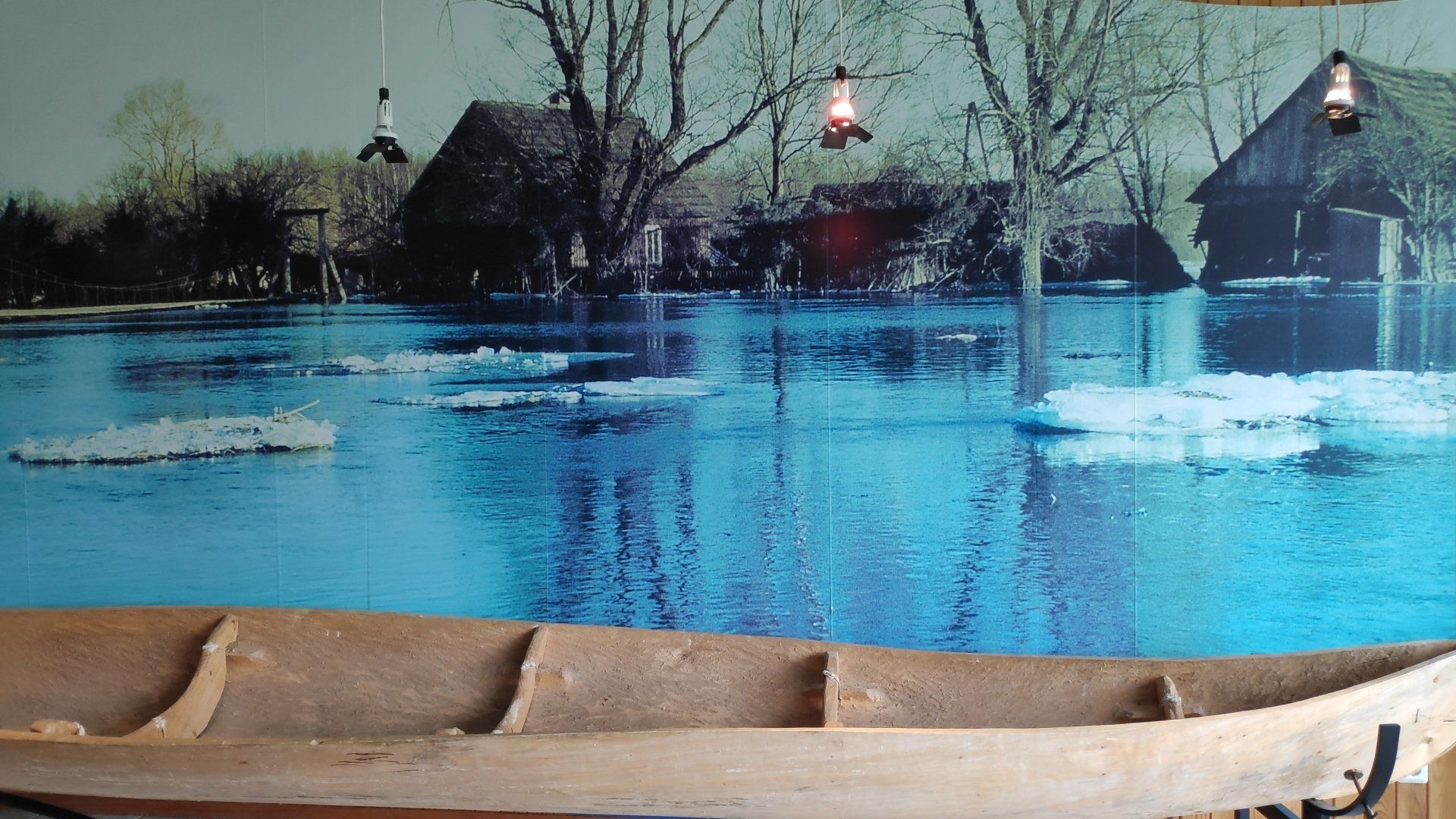
Folientitel
The dugout boats culture was one of the examples of how to live and cope with the floods (Estonia's Soomaa region dugout boat culture added to UNESCO protection list - Fenno-Ugria (fennougria.ee)).
By Aleksandra Sieradzka Stasiak
Taste -
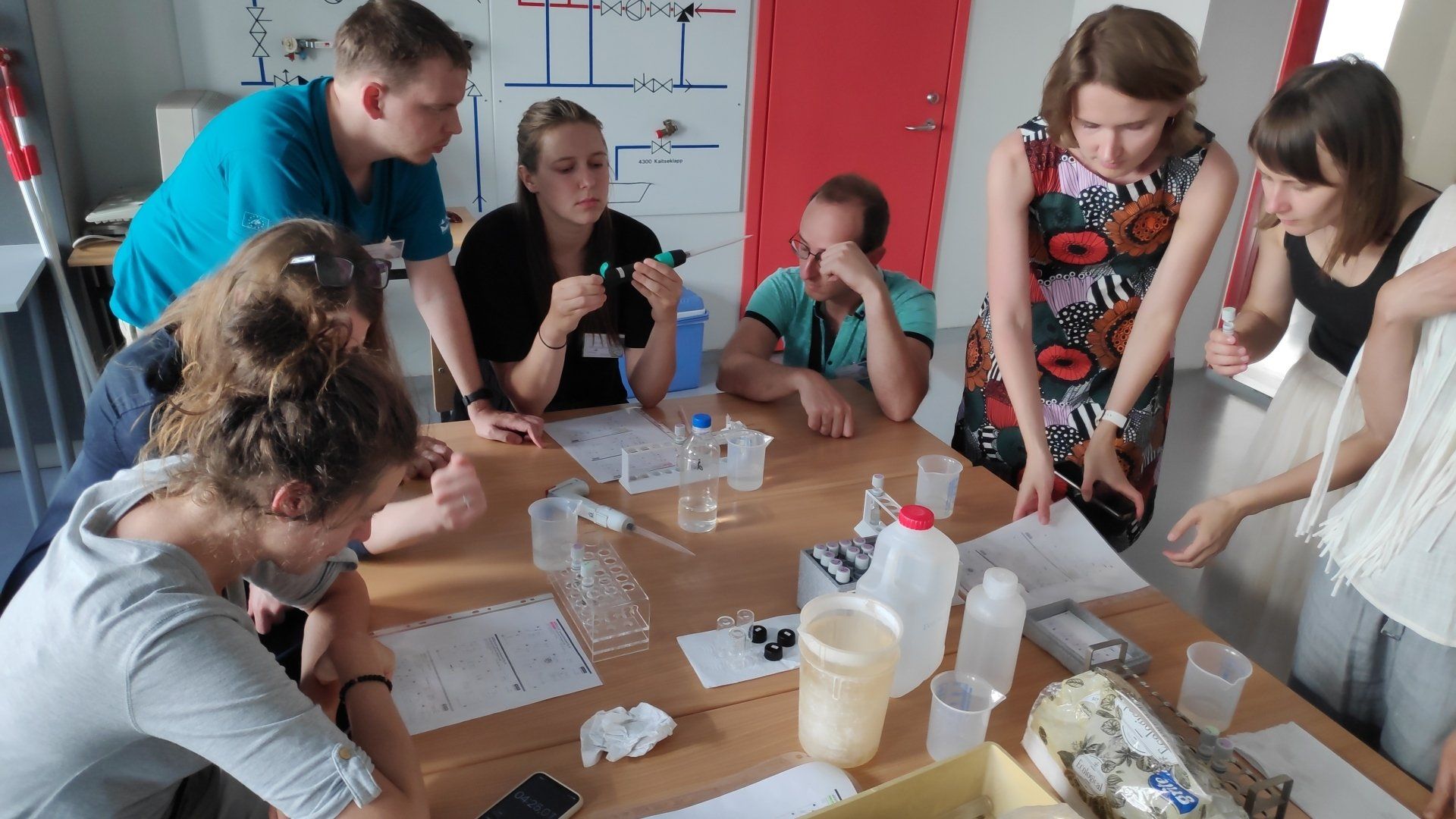
Folientitel
What we got by water sample from the river we tested in the laboratory. By Aleksandra Sieradzka Stasiak
Taste -
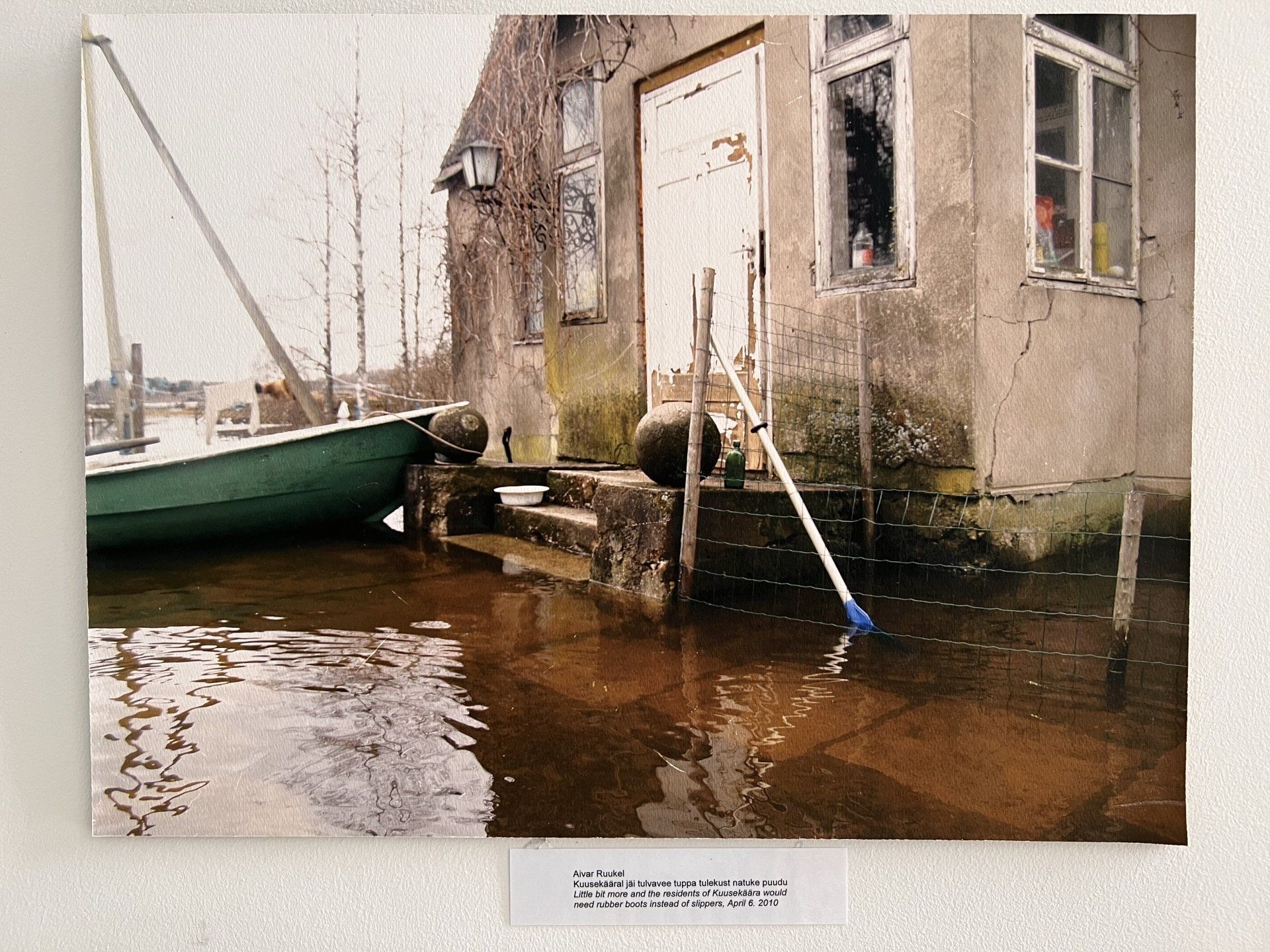
Folientitel
Floods in Estonia make their impact, they teach how to adapt. By Patrycja Romaniuk
Taste -
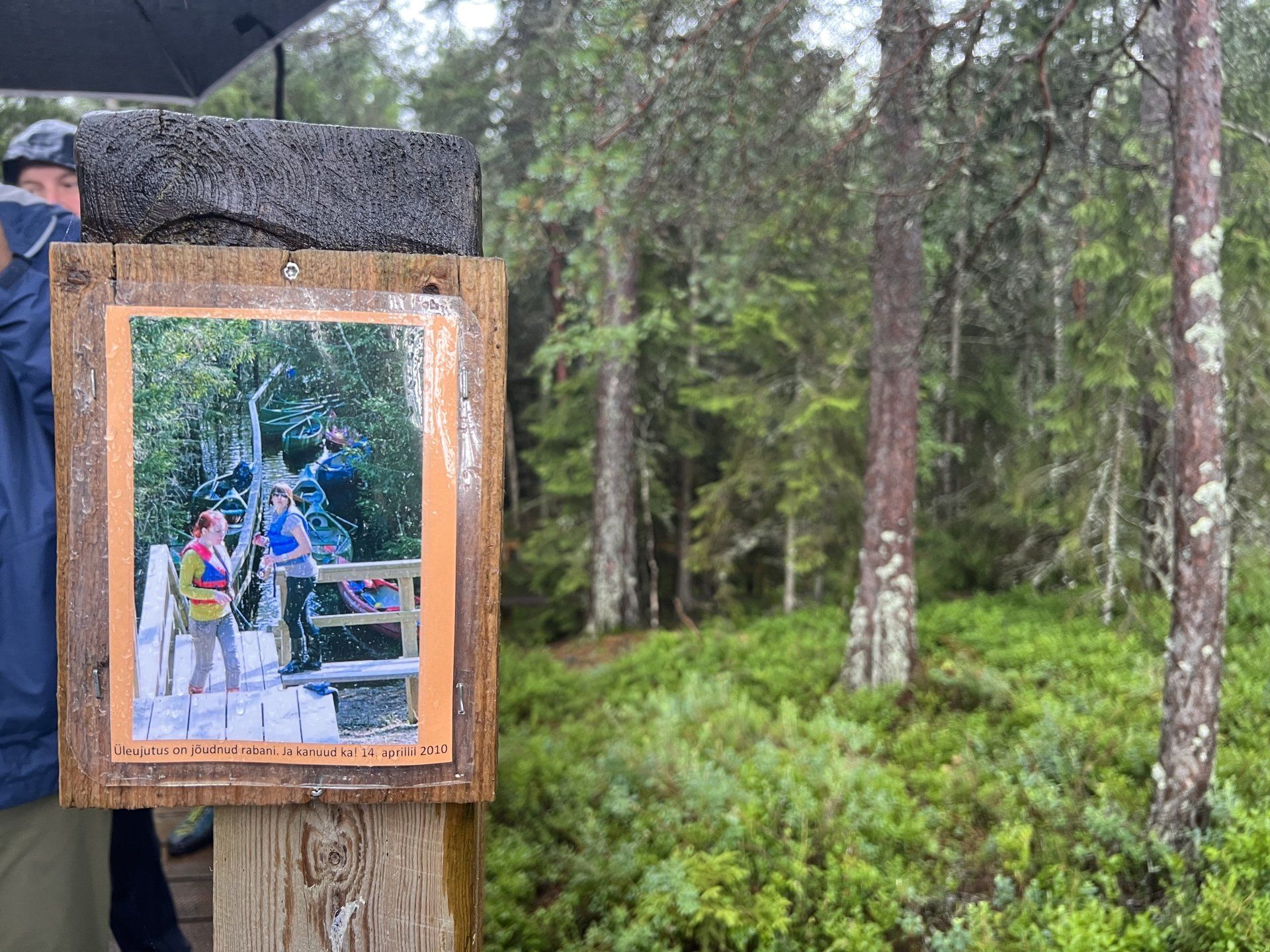
Folientitel
Floods in Estonia make their impact, they teach how to adapt. By Patrycja Romaniuk
Taste -
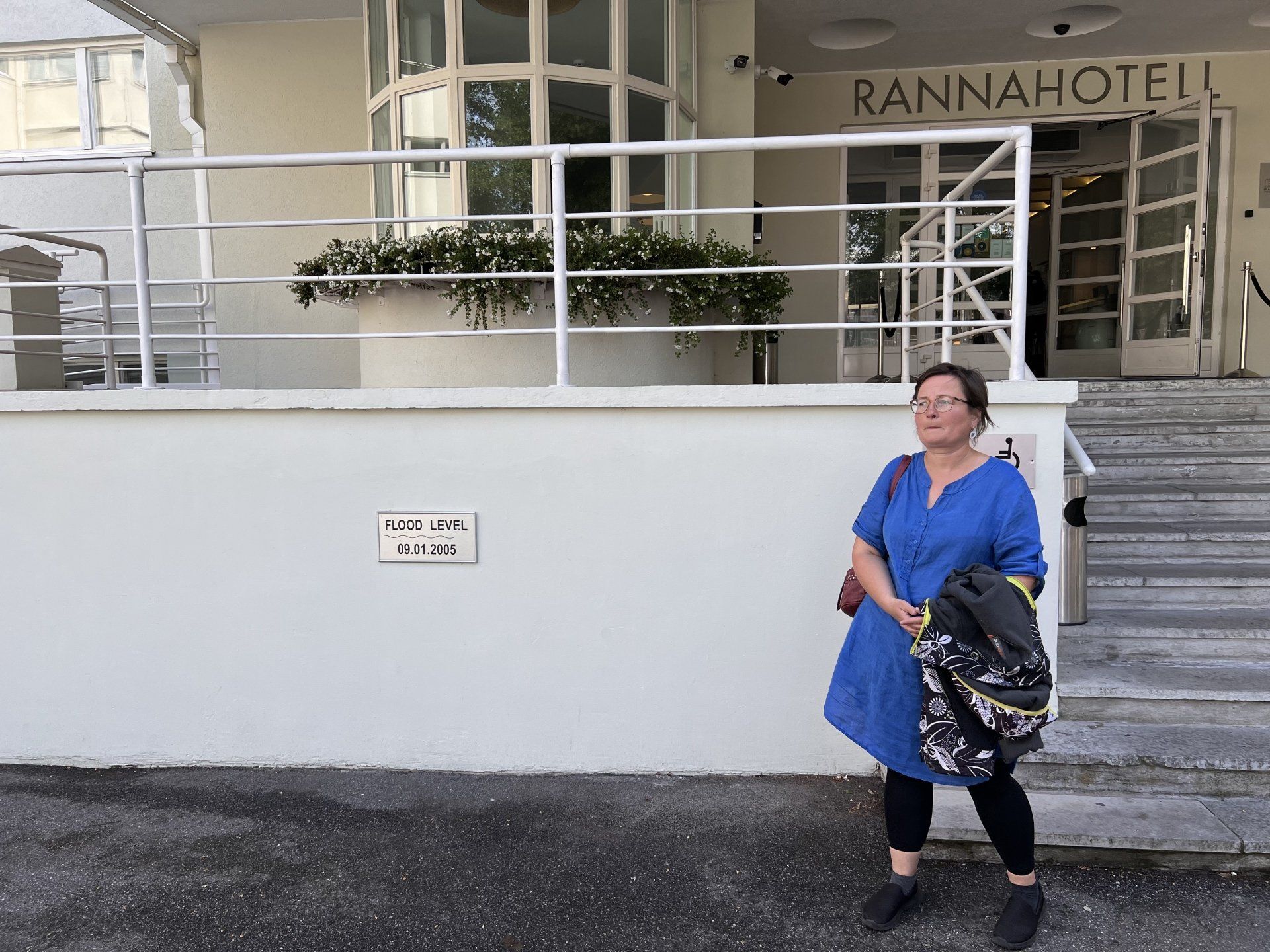
Folientitel
Signs of the floods are everywhere, in different parts of Estonia, the signs take a role of good memory across the decades. By Patrycja Romaniuk
Taste -
Folientitel
Results from the participants: How do you understand the coordination and synergy of planning in flood risk management vs. water protection?
Taste
Ansprechpartner:
Ewa Leś, CCB Working Group Leader on Eutrophication
+48661252079
evvales@gmail.com
Originator and founder of River University/Rzeczny Uniwersytet (tested in 2018, established internationally in 2020). A biologist by profession, but looking towards people and their perception of the environment. Co-founder of Koalicja Ratujmy Rzeki/Save The Rivers Coalition (KRR), a social initiative for the protection of natural rivers in Poland, gathering the voices of ‘river stakeholders’ into one strong tone. Member of EEB water working group, Observer of International Commission for the Protection of the Odra River against Pollution. Co-creator and coordinator of the first Water Round Table in cooperation with the Polish Ministry of Environment (2009-2011). Engaged in creating a Partnership for the Baltic initiative (2007-2011). Particularly working in areas of transboundary rivers, water stakeholders inclusion and engagement, water conflicts, water democracy building. A supporter of NVC dialogue. She comes from her two parental organizations: Society of Friends of Ina and Gowienica rivers and EkoUnia Association.
~ Lasst uns mit der Strömung des Flusses schwimmen und voneinander lernen! ~
The event is co-organised by the
Estonian Water Association
and Coalition Clean Baltic.
Die Veranstaltung ist Teil des Nature Positive Universities-Netzwerks.
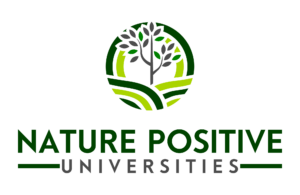
Funded by the LIFE Programme of the European Union
Views and opinions expressed are however those of the author(s) only and do not necessarily reflect those of the European Union or CINEA. Neither the European Union nor the granting authority can be held responsible for them.
Die River University ist eine unserer jährlichen Veranstaltungen. Hier können Sie mehr über das Projekt und die vorherigen oder zukünftigen Ausgaben lesen.


